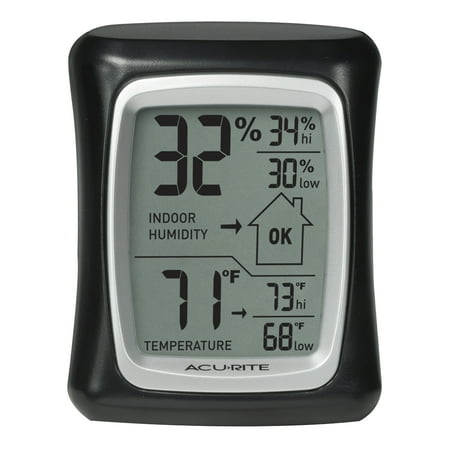How to control humidity in your home – experts reveal the early warning signs you need to know about, plus how to regain control if it spirals
Everything you need to know, in one place


It plays a huge role in comfort, which is why knowing how to control humidity in your home is vital. Too much can leave rooms feeling stuffy or turning moldy, while too little can cause physical discomfort and damage furniture. Striking the right balance is, therefore, a must.
From working out the best humidity for a home to learning how to control it with the right technology, there is a lot that goes into keeping your home dry, but not too dry.
This complete expert guide to controlling humidity in your home can help you work out why your house feels dry (or too damp), and what to do about it to restore order.
What is humidity, and why does it matter at home?
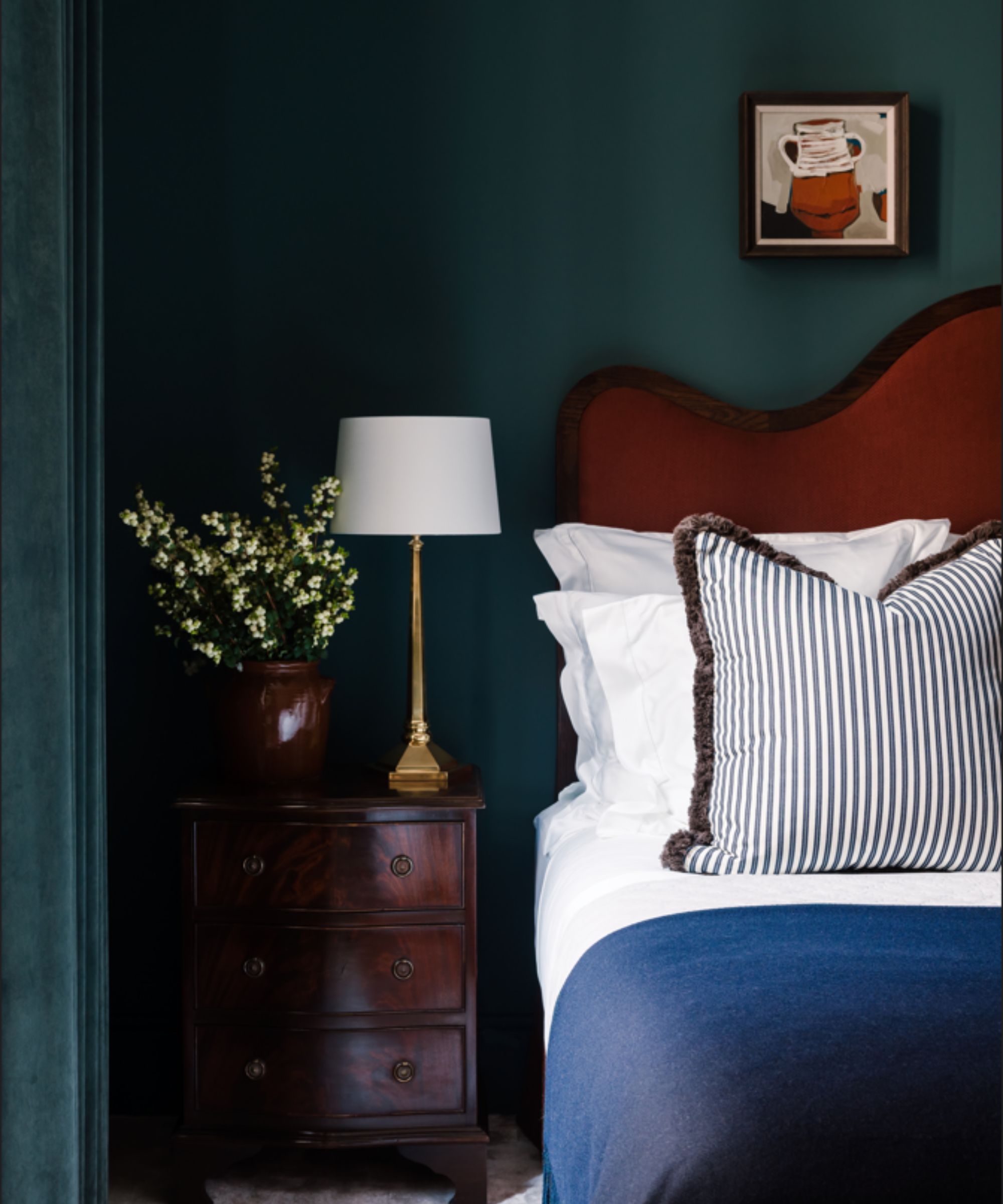
Humidity effects everything, from your furniture, to your health, and even your sleep.
Humidity refers to the amount of moisture or water vapour present in the air.
Maintaining a consistent, safe level of humidity in the air in your house plays a big role in keeping you healthy and preventing damage to the structure of your home, and the items in it, for several important reasons:
- Health: High humidity levels can increase the proliferation of dust mites and other allergens, exacerbating allergy and asthma symptoms. Additionally, it creates an environment conducive to the growth of mold and mildew, which can lead to structural damage and health problems. Maintaining a humidity level between 30-50% helps prevent the growth of bacteria, viruses, and mold and mildew, which thrive in higher-humidity environments.
- Preservation of home and belongings: High humidity can cause paint to peel, wood to warp, and metal to corrode. Reducing your home's humidity levels can help protect household objects from moisture damage.
- Comfort: High humidity levels make the air feel warmer than it is, leading to discomfort and increased reliance on air conditioning. Proper humidity levels help keep your home comfortable without overworking your AC.
- Energy efficiency: Controlling humidity levels can make cooling systems more efficient, reducing energy consumption and cutting energy bills.
Signs of low and high humidity
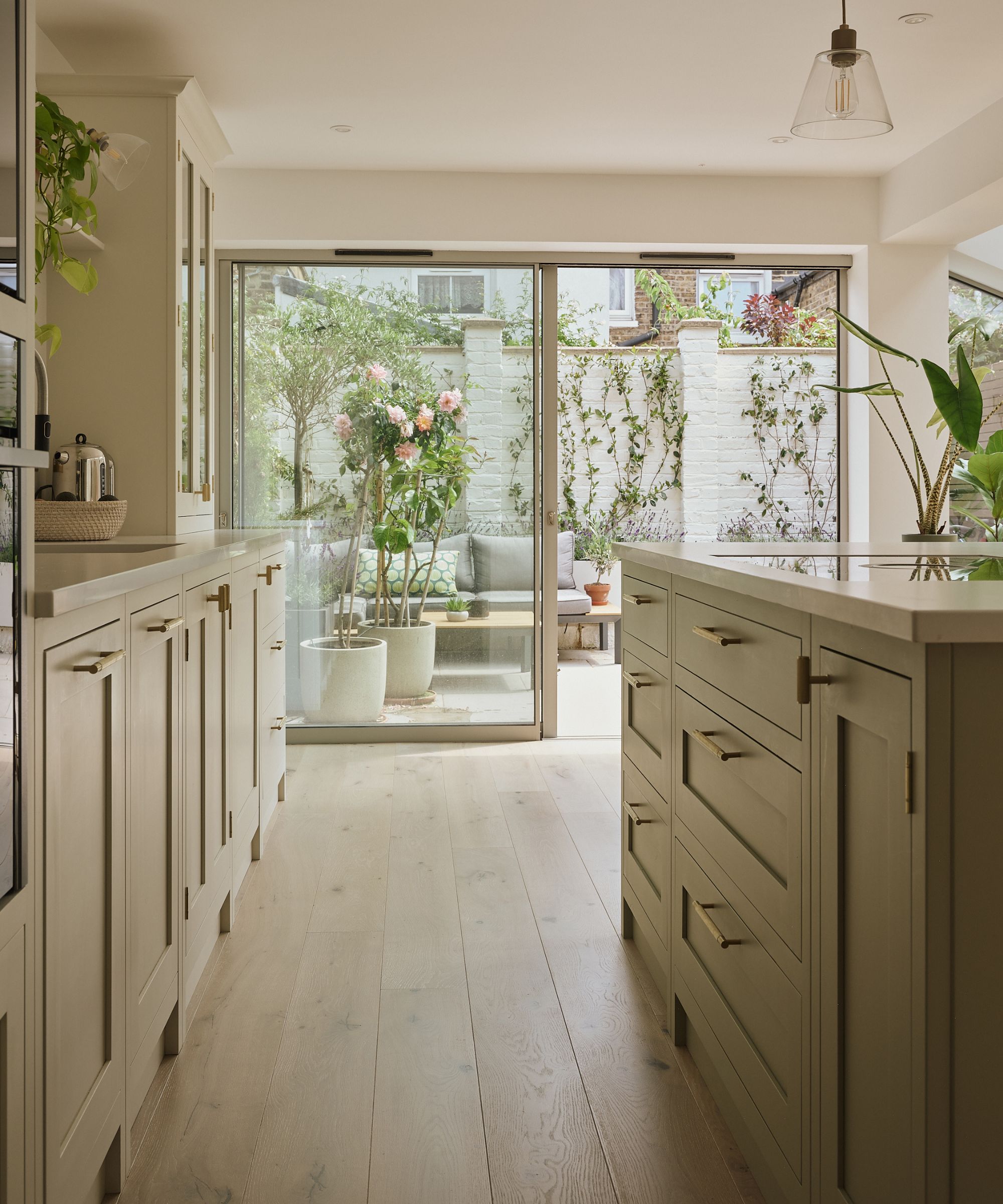
You will often spot some physical effects of low and high humidity throughout your home.
Because humidity impacts so many things in your home, there are often several warning signs that it is experiencing too high or too low humidity.
Ignoring them is a winter and summer home maintenance mistake that could seriously damage your home.
Design expertise in your inbox – from inspiring decorating ideas and beautiful celebrity homes to practical gardening advice and shopping round-ups.
The signs to look out for will differ depending on whether the humidity in your home is too high or too low.
Warning signs for high humidity in your home include:
- Condensation: One of the main signs of high humidity in your home is condensation accumulating on the windows. Rooms might also feel 'stuffy'.
- Mold and mildew growth: Mike Powell, home inspector and structural engineer at Florida-based Red Flag Home Inspection, explains, 'When moisture-laden air becomes stagnant, it is particularly problematic for mold growth. This is why behind furniture and within closed-door closets can become issues.'
- Musty odors: Mike continues, 'When excess moisture accumulates in porous materials like carpets, drywall, or wood, it fosters bacterial growth, which releases volatile organic compounds (VOCs) that are responsible for the perceptible odor.'
- Peeling paper or paint: High humidity levels can also cause moisture to penetrate walls and ceilings, weakening the adhesive bond of paint or wallpaper.
- Warped wood or flooring: ‘When exposed to consistently high humidity, wood absorbs moisture, causing it to swell, warp, or even rot if the issue persists,’ Mike explains.
Warning signs for low humidity in your home include:
- Respiratory discomfort: 'Dry air can worsen respiratory conditions such as asthma and allergies,' explains Josh Mitchell, HVAC technician and owner of Air Conditioner Lab. 'It irritates mucous membranes in the nose and throat, making you more likely to get colds and respiratory infections.'
- Skin irritation: Low humidity can lead to dry, itchy skin and chapped lips. Over time, it can worsen eczema and other skin conditions.
- Eye irritation: Dry environments can irritate the eyes, particularly for contact lens wearers or those with sensitive eyes.
- Cracking wood: 'Low humidity conditions can damage wood floors, furniture, and musical instruments,' says Al Fouz, owner of Abaco Air Experts. 'In excessively dry conditions, wood tends to lose moisture and shrink, leading to warping and cracking.'
- Increased static: 'Low humidity levels increase static electricity, which can be a nuisance and potentially harm sensitive electronic equipment,' warns Josh Mitchell.
Best humidity levels for a house
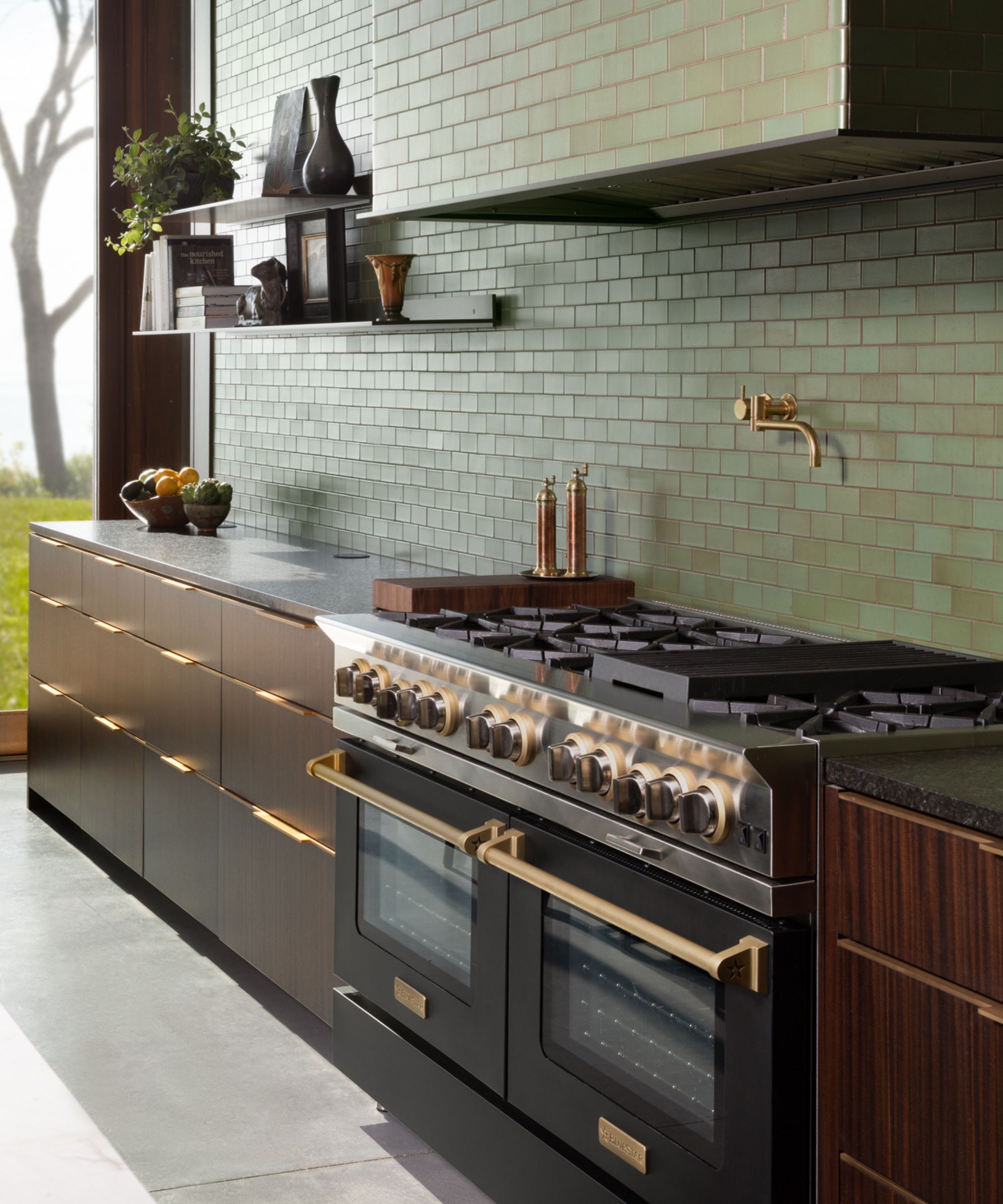
Maintaining constant, healthy humidity, can prevent health and structural problems.
According to Josh Mitchell, indoor humidity of between 30% and 50% is recommended for most homes throughout the year. You can keep track of this using an affordable hydrometer from Walmart.
That being said, where the humidity feels most comfortable within this range will come down to personal preference, and often, the weather outside.
Josh says, 'In the colder months, humidity is generally lower, aiming for the lower end of this range (around 30% to 40%) can help stop condensation on windows and the accompanying mold or mildew growth. This will also provide enough moisture in the air to alleviate issues associated with dry air, such as irritated skin, throat, and nasal passages.'
If, however, you wake up with a sore and dry throat, it's worth sleeping with a humidifier running and using shock ventilation in the morning to reduce the risk of mold.
'During the warmer months, keeping humidity levels at the higher end of the spectrum (40% to 50%) can help make the air feel cooler and more comfortable, reducing the need to lower the thermostat and helping cut your energy bills,' says Josh.
How to reduce humidity
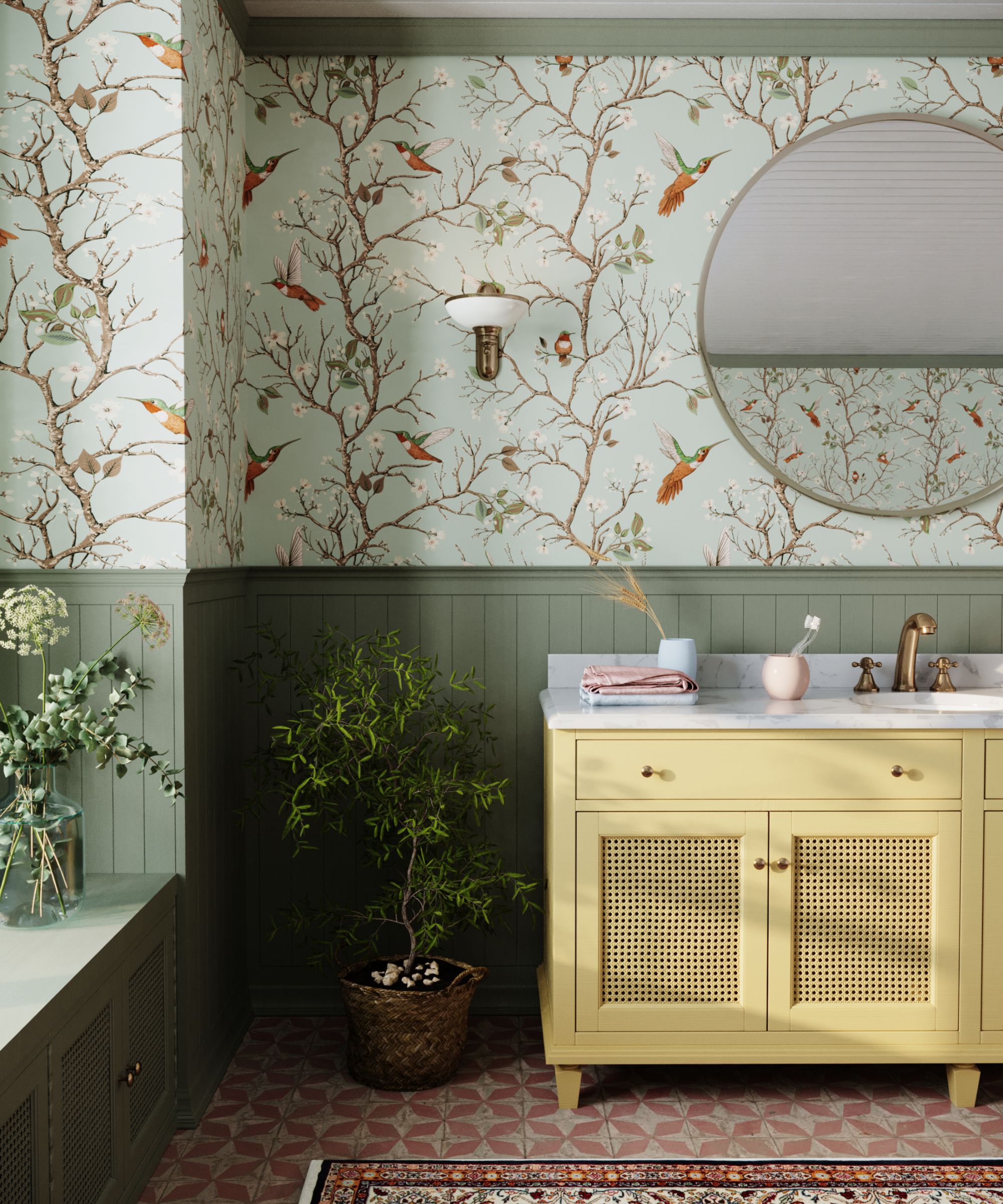
You can reduce humidity with and without a dehumidifier.
When the humidity in a home is too high, you need to reduce it quickly or risk mold. Luckily, there are several ways to do this:
- Invest in a dehumidifier: Picking the best dehumidifier, such as the Insignia 35-pint dehumidifier, from Best Buy, for your home is the quickest and easiest way to reduce humidity in your home, albeit one of the more expensive. Make sure to position it centrally in the room, away from any walls or furniture to allow good airflow and avoid the most common dehumidifier mistake of picking a machine too small for your space.
- Insulate your home: Outdoor humidity can have a drastic impact on the humidity inside your home. Josh Odmark, co-founder of IAQ urges, 'Your primary source of humidity is probably outside. Make sure your house or apartment is airtight [using waterproof sealant, from Walmart] and then reduce your water use indoors, taking fewer shorter showers, avoiding boiling large pots of water, and so on.'
- Ventilate: If the humidity outside is lower than inside, Chris Coleman, quality expert and VP of marketing at DH Lifelabs says the simplest metod to reduce indoor humidty is to open windows at opposite ends of the home to create a cross breeze, and 'use exhaust fans and hoods in the kitchen and bathroom, especially as these areas often contribute to high humidity levels.’
- Use salt: For small areas, such as reducing humidity inside of cabinets or reducing condensation on windows, Josh suggests using salt in a small bowl to help absorb some of the moisture. Silica gel packets, available from Walmart, can also work for this.
- Reduce moisture-causing activities: Indoor moisture is usually a result of cooking, showering, and drying clothes. Limiting these activities, or ventilating rooms when you do, can make your home more comfortable.
- Turn on AC: If you have an AC unit, Chris explains that AC units remove water from the air in order to cool it, helping to make the room more habitable in hot, damp weather. ‘Ensure that your air conditioner is properly maintained and the filters are clean to ensure it's operating efficiently,’ he adds. ‘This can help you to save money at home too.’
- Use houseplants: Although they work to a limited effect, houseplants, particularly the best plants for bathrooms, can have some impact on the humidity in your home, suggests Chris Coleman, air quality expert. ‘Some houseplants, like peace lilies and Boston ferns, can absorb moisture from the air. This can be a natural way to reduce humidity while also improving the aesthetics of your home,’ he explains.
How to increase humidity
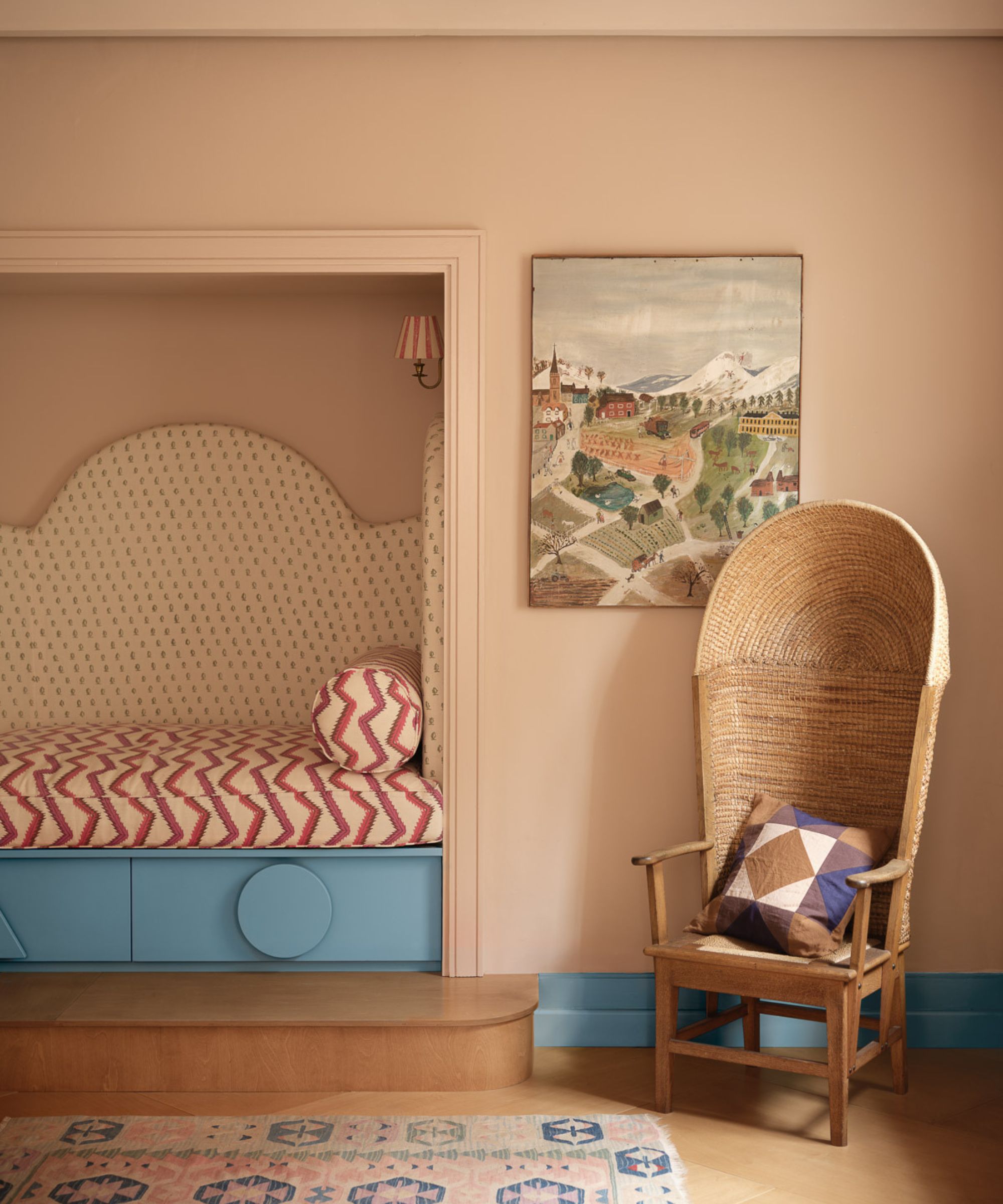
Low humidity can be just as damaging to your home as high humidity.
Conversely, low humidity needs to be treated to help to protect your health. It is important to do this carefully, however, to avoid over-humidifying your home and swinging the problem the other way.
To do this, the pros suggest:
- Humidifiers: A humidifier, like the Levoit VeSync Ultrasonic Smart Humidifier from Best Buy is the most direct way to add moisture to indoor air. There are several types, including ultrasonic and evaporative humidifiers, each with pros and cons depending on your specific needs. This Small Alrocket humidifier is a best seller at Walmart.
- House plants: Adding houseplants can naturally increase the humidity through transpiration, as plants release moisture into the air. Some of the best humidifying plants include spider plants, peace lilies, Boston ferns, and areca palms.
- Ventilation: Proper ventilation helps maintain a good balance of fresh air in your home without drying out the indoor environment. Ensure air isn't leaking from overly dry areas such as attics or basements.
- Monitoring: Use a hygrometer, available at Target, to monitor humidity levels in your home. This helps you adjust the use of humidifiers or other humidity solutions to ensure levels stay within the ideal range.
- Trap shower moisture: Although we usually recommend ways to improve bathroom ventilation to reduce humidity, trapping steam from a shower can help to quickly and temporarily increase indoor humidity to alleviate dryness. Ben Baca, implementation manager and HVAC expert at SmartAC.com, explains, 'Taking a long hot shower and boiling water or cooking a meal are more temporary solutions to indoor humidity levels and are not very efficient or controlled. These methods will work in a pinch, however.'
- Heat water: Marc Jiggins, managing director at Pyramid Eco, suggests, 'Placing a bowl of water near a radiator or heating vent lets it evaporate gradually, adding gentle humidity to the air.' This method is slow, but it works in a pinch. To do this, use a glass bowl, available at Walmart, as it will not melt like plastic, and will not become as dangerously hot as a metal bowl.
Home tech to help control humidity
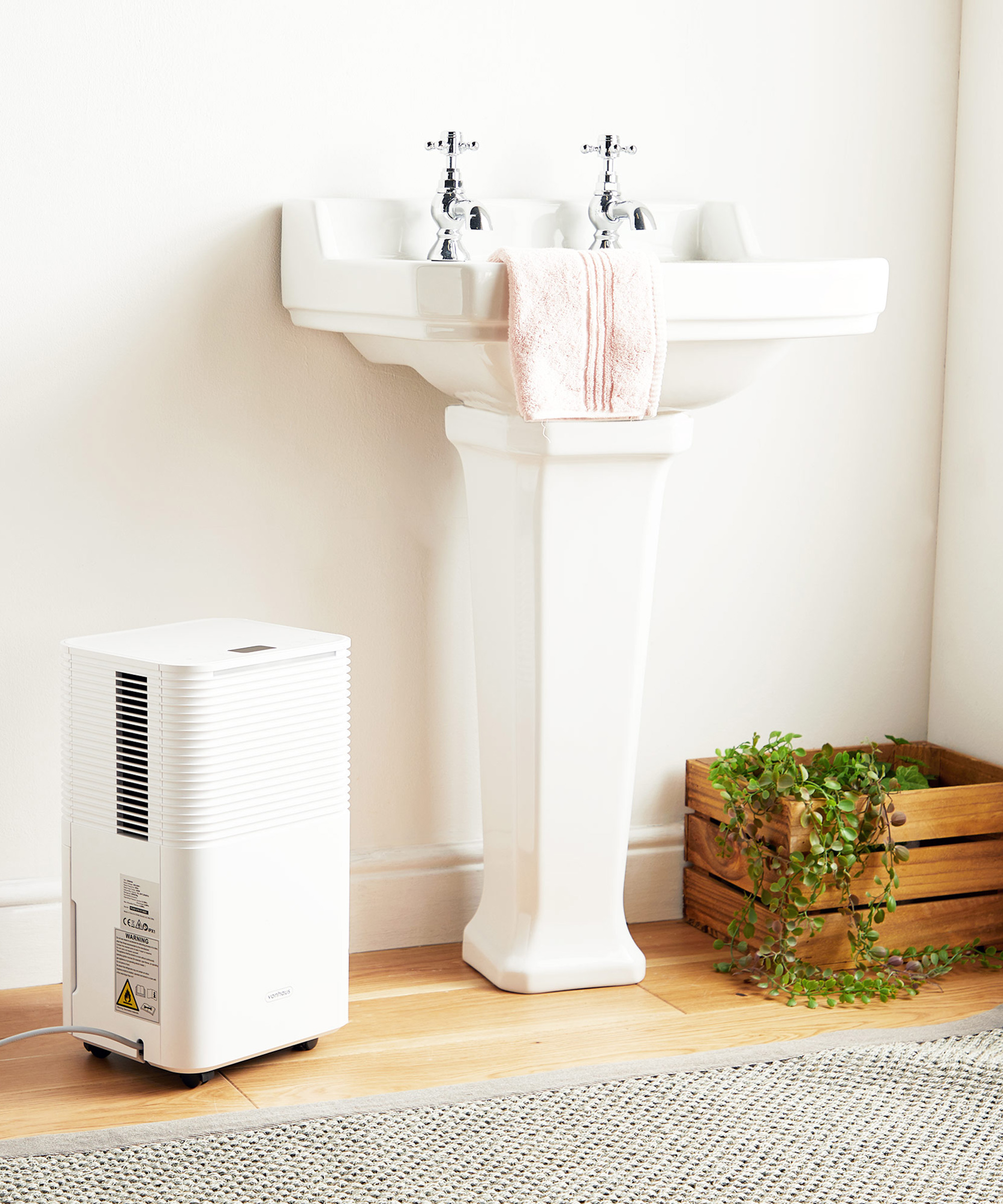
Knowing which appliance does what can help you better control the humidity in your home.
Humidity controlling tech is a smart home must-have, helping you to keep tabs on and control the moisture levels in your home.
Understanding what each appliance does, how they work, and how to use them can help you pick the right tools for your home and use them efficiently to maintain good humidity.
Dehumidifiers
As the name suggests, dehumidifiers lower humidity levels, thus 'dehumidifying' the space.
Bethany Uribe, dehumidifier expert from ASAP Restoration, explains, 'Essentially, a dehumidifier pulls water vapor out of the air by condensing it and collecting it in a receptacle.
'A fan takes the wet air and pushes it over the evaporator coils. These are filled with a refrigerant condensed liquid. When the wet air passes over the cooler coils, its capacity to hold the moisture is reduced. This then causes the moisture to be deposited through condensation and collected in the reservoir.'
When the reservoir is full of water, it must be emptied either by yourself or through an integrated draining system. It's one of the many things I wish I knew before buying a dehumidifier.
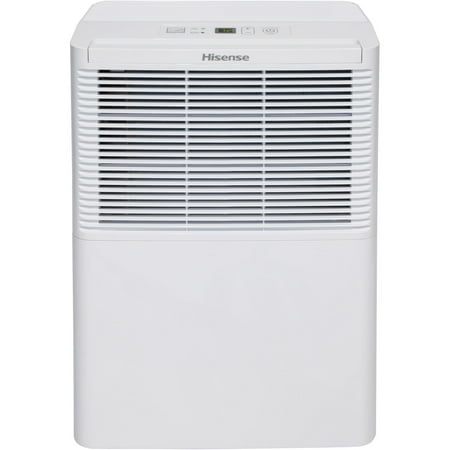
Designed for rooms up to 1500 sq. ft, shoppers love this dehumidifier for being easy to use and very effective for reducing humidity indoors. They also love the auto-shut off feature to reduce over-drying a home and prevent tank leaks.
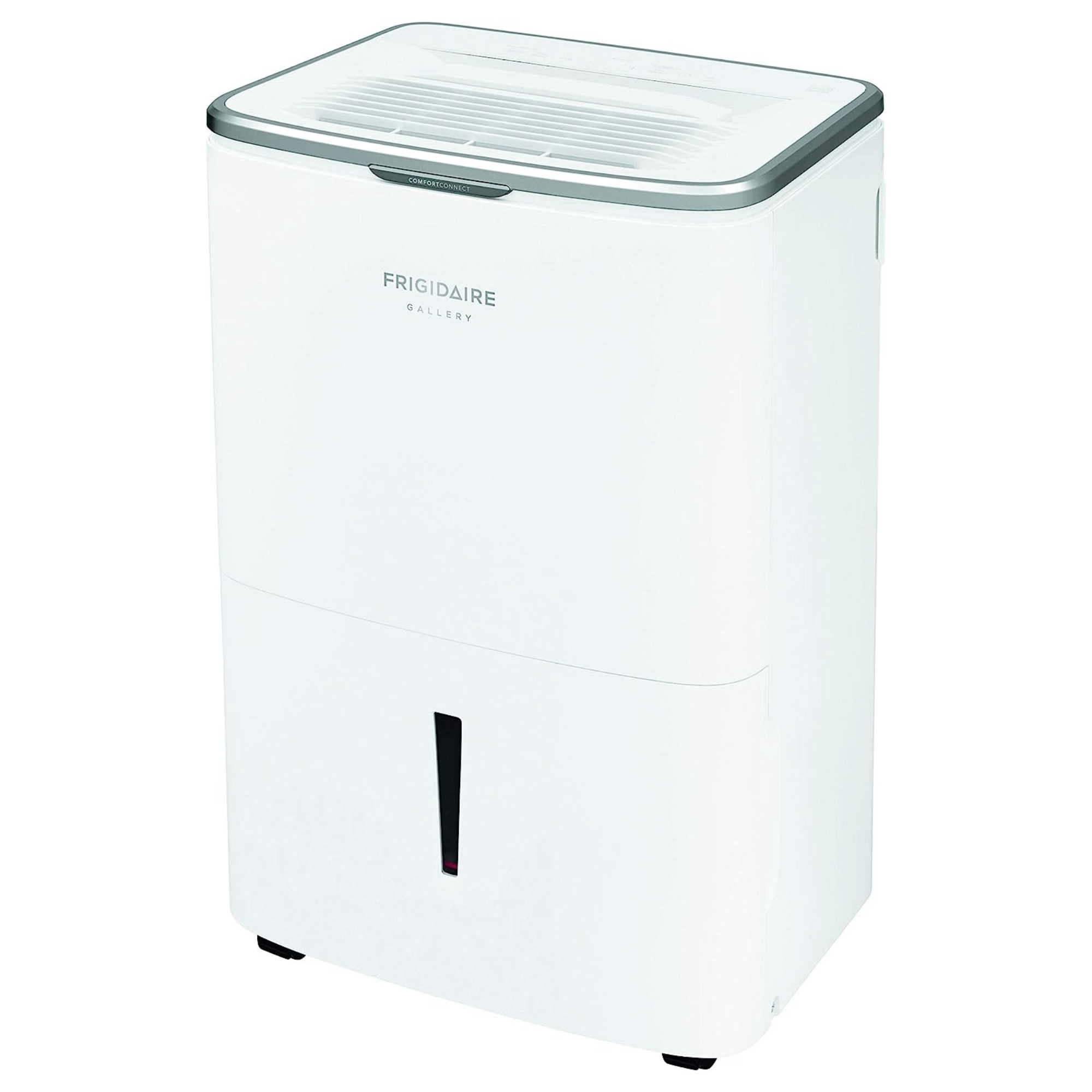
We've just reviewed this Frigidaire Gallery Dehumidifier, and awarded it 4.5 stars thanks to its comprehensive feature set. You can set desired humidity levels, change fan speed, choose between auto, quiet, and dry mode, and track via an app. It does a great job at its core function of dehumidifying.
Pros
- Does a fantastic job dehumidifying
- Easy to set up and use
- Full feature set
Cons
- Fairly heavy
- A little bit on the pricey side
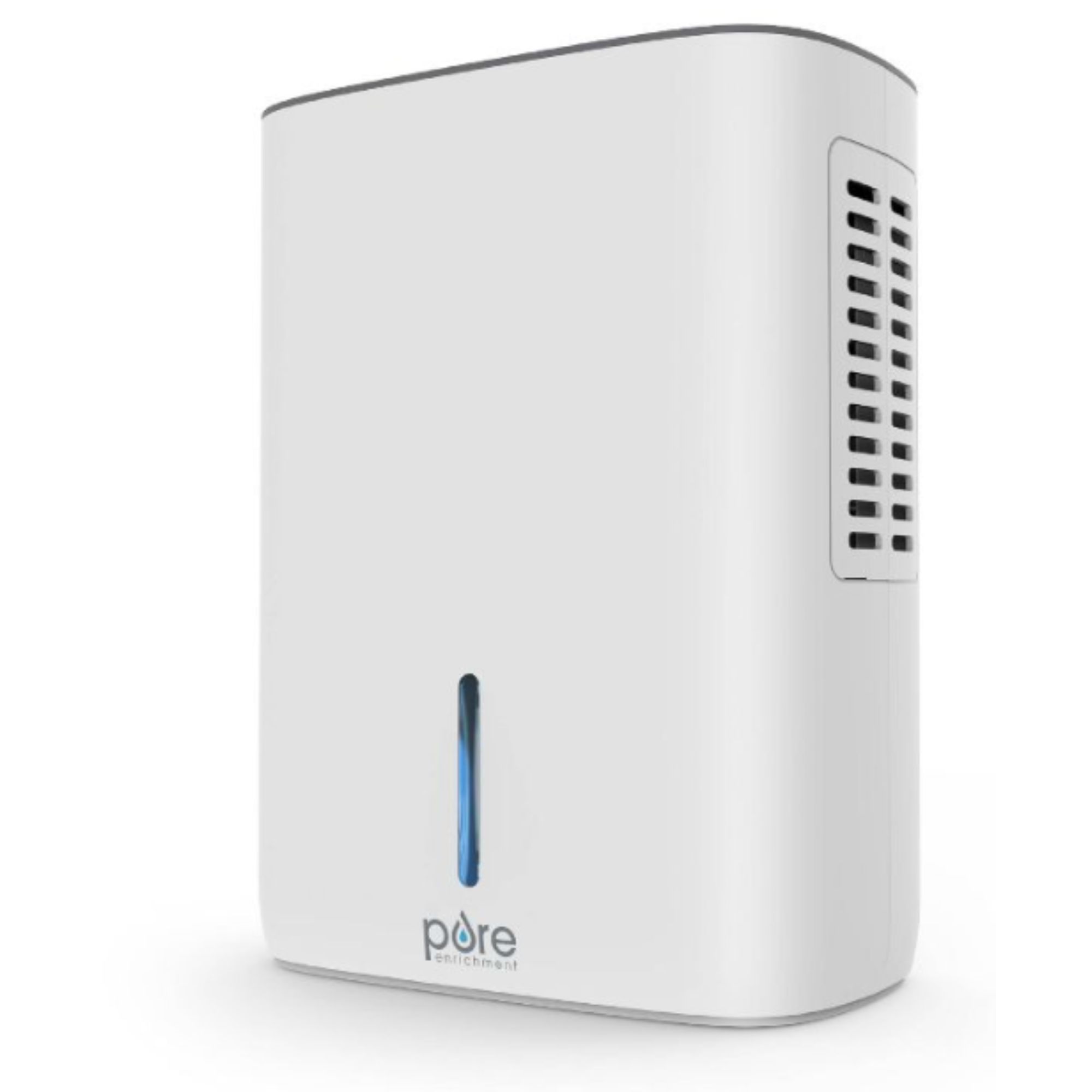
This affordable unit’s portable design is the perfect size to keep bathrooms and mid-sized rooms free from excess moisture. Don't run electrics in bathrooms, however. Position them in the hall for safety and to avoid an electrocution risk.
Humidifiers
Humidifiers do the exact opposite of a dehumidifier, adding moisture back into the air.
Brad Roberson, president of Aire Serv, explains: 'Humidifiers are used to combat dry air in homes. With proper humidification, homeowners can reduce the occurrence of allergens. Reducing the allergens in the home makes the air easier to breathe.'
Humidifiers have water reservoirs that need to be periodically filled up so that the humidifier can turn it into vapor.
Humidifiers come in various types, including evaporative, ultrasonic, and steam vaporizers. They work by using a water reservoir (that the user typically fills up themselves) and a mechanism to disperse moisture into the air, either through a fan or ultrasonic vibrations.
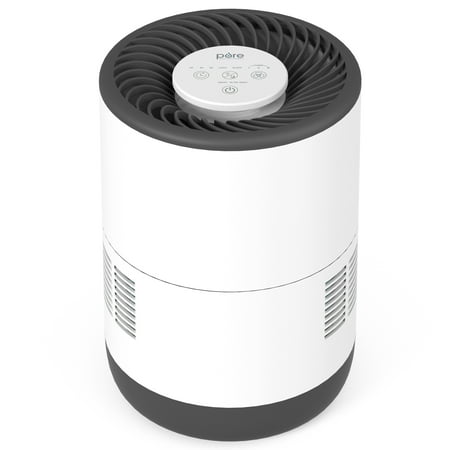
This evaporative humidifier uses whirlwind fan technology to capture, cool, and humidify the air in rooms up to 500 square feet.
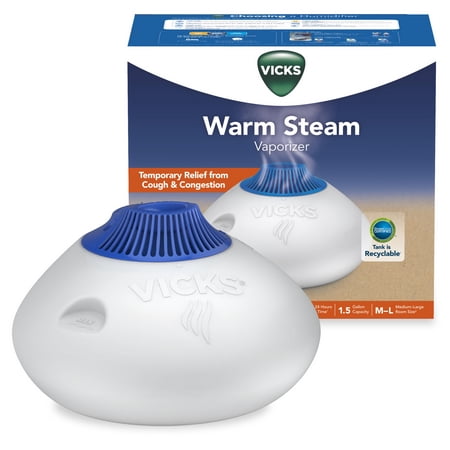
This warm steam vaporizer is prefect for adding moisture to a home in winter, when people are struggling with raspatory illness.
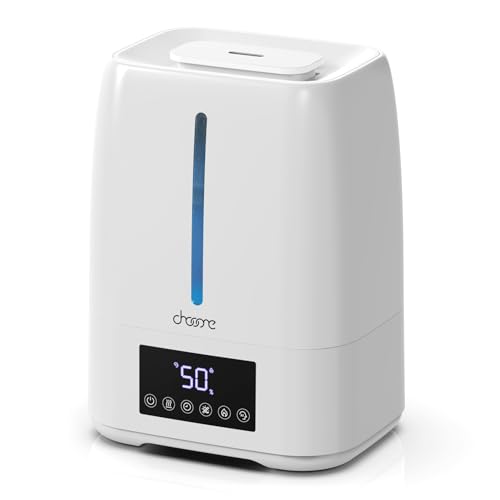
This small humidifier offers both cool and warm misting settings. Warm air mist to help alleviate irritated sinuses, and cool mist to help with dry skin.
Air purifiers
Air purifiers are designed to remove contaminants from the air. They typically use mechanical filters (like HEPA filters) and carbon filters to capture particles like dust, dander, pollen, smoke, and volatile organic compounds (VOCs).
These devices work by drawing air into the unit, passing it through the filters, and then releasing the purified air back into the room. As particles are trapped inside the machine during this process, air purifier filters need regular replacement, typically around every six months.
Different air purifiers boast different particulate size performances. HEPA filters, by their standard, must be able to capture particles as small as 0.3 microns, but many air purifiers from brands like Dyson, Molekule, and Shark can trap even smaller particles.
Air purifiers usually do not control humidity in your home, unless they come with a built-in humidifier or dehumidifier.
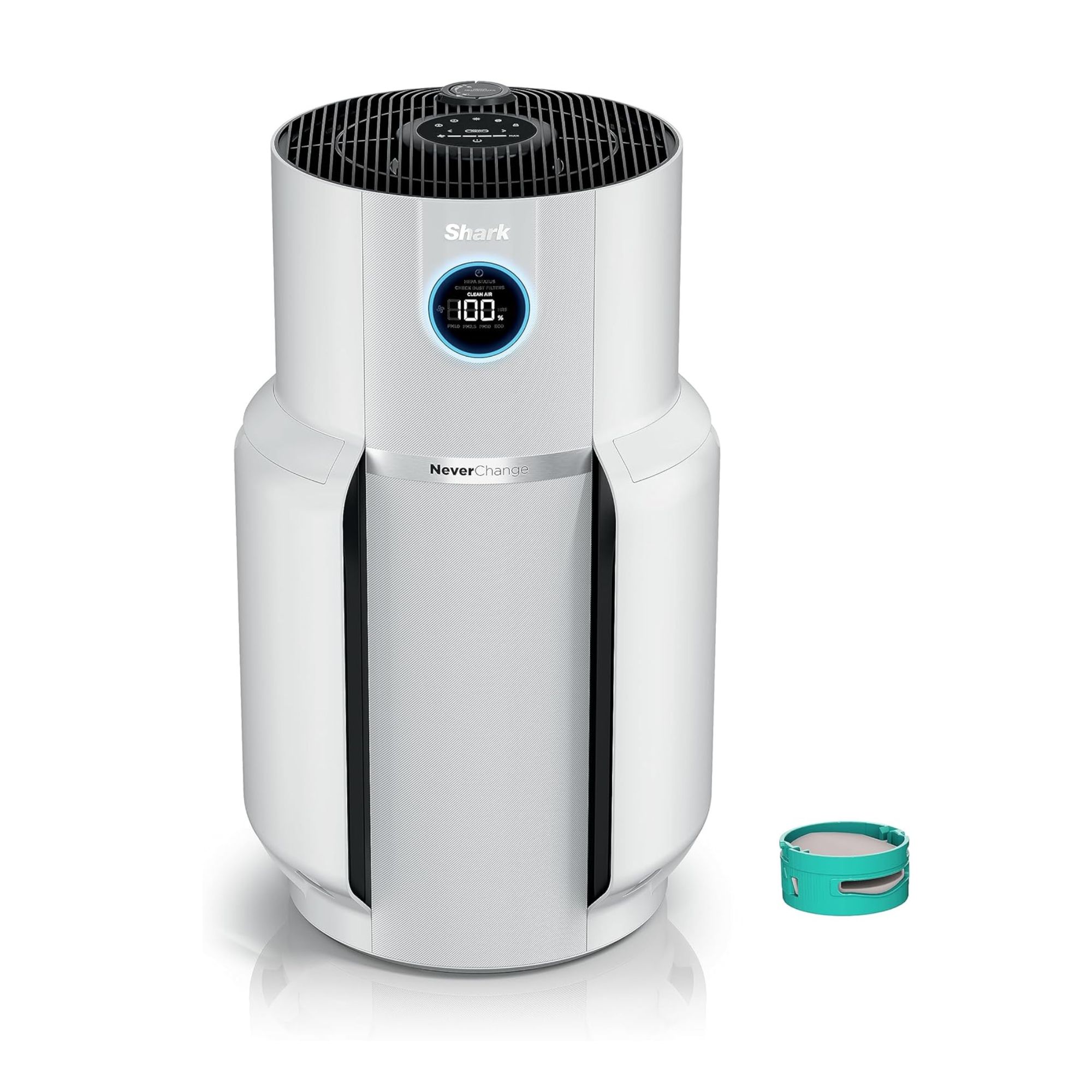
The Shark NeverChange Air Purifier MAX can cover spaces up to 1,400 square feet with smart air quality detection. Cleanable filters avoid any filter replacement costs for up to five years, which is when the manufacturer recommends a new one.
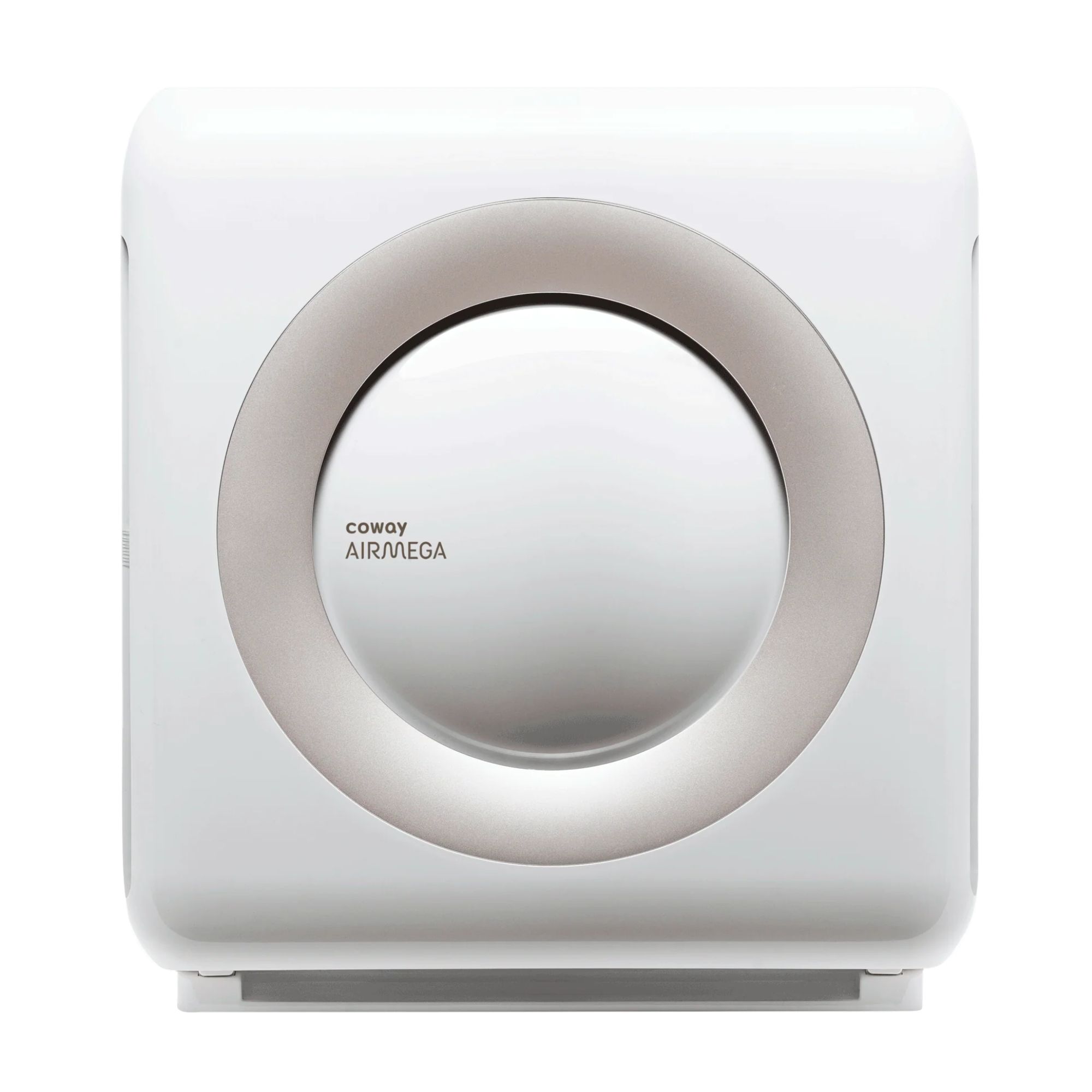
For a similar price as the Shark NeverChange MAX, the Coway Airmega Mighty can cover even more space while taking up less space itself. It also releases negative ions into the air that make pollutants easier to capture.
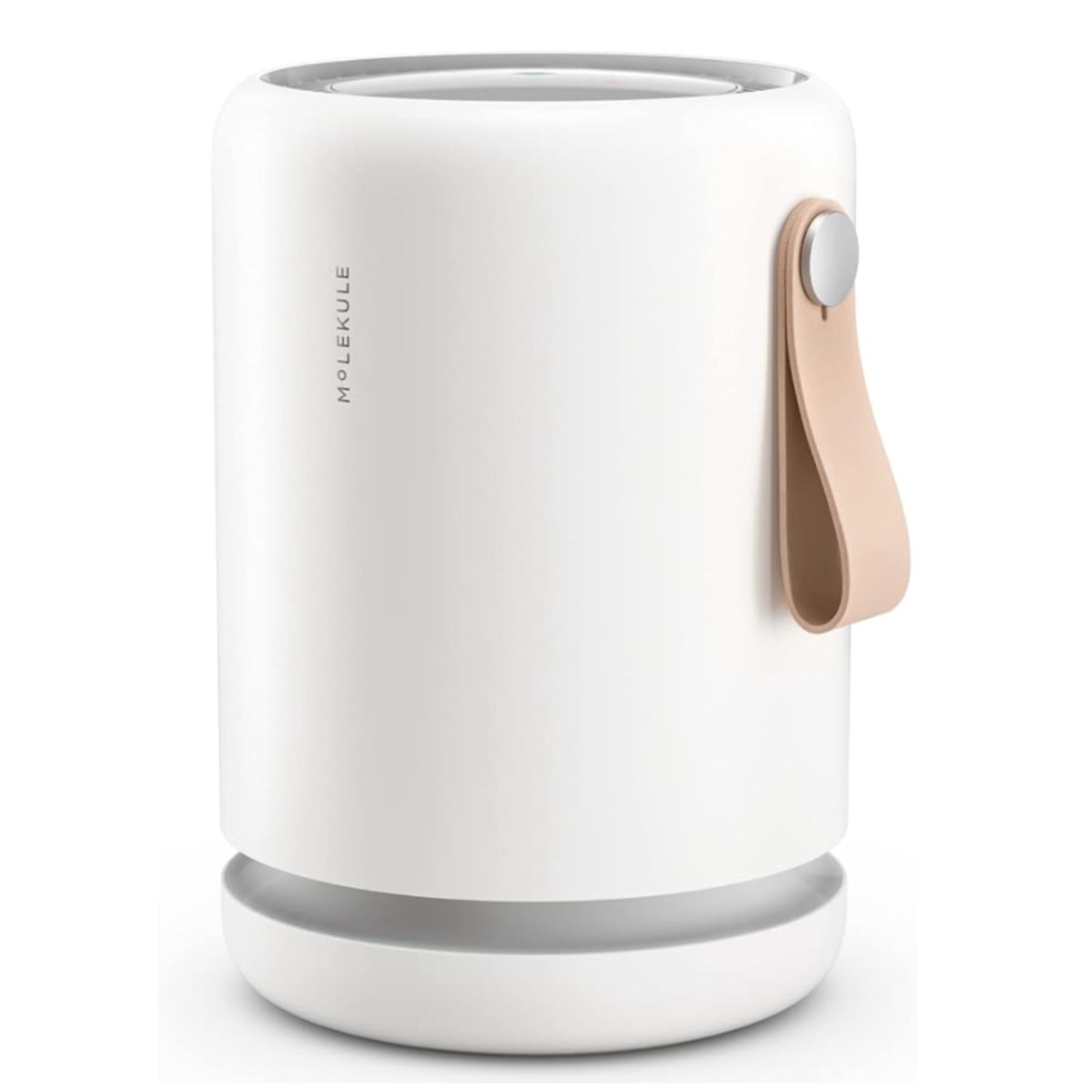
The Molekule Air Mini+ captures and destroys allergens while giving you detailed insight into the particles it detects in your air.
Humidistats and hygrometers
As the name suggests, a humidistat (or a hygrometer), available cheaply at Walmart, is a device used to measure home humidity levels.
'A humidistat measures the relative humidity (RH) level in the air, detecting if the air is too dry or too humid,' explains David Miloshev, electrician and home improvement expert at Fantastic Services.
This tiny electronic device helps you understand whether your home maintains comfortable humidity levels. 'By providing you with accurate readings, it helps you maintain a healthy environment,' adds Glenn Gault, CEO of Gault Heating & Cooling.
It's important to remember that humidistats themselves don't necessarily control the humidity unless they're hooked up to a home's HVAC system or stand-alone humidifier/dehumidifier. And, saying that, many humidifiers will already have a humidistat built in.
Ideally, every home should have one – understanding your home's humidity levels means understanding your home's air quality.
FAQs
What causes high humidity in a home?
While high humidity in a home can be caused by high humidity outside seeping in due to poor insulation, it can also be the result of poor ventilation, with moisture from everyday activities such as showering, cooking, cleaning, and even breathing being trapped inside your home.
Leaks and structural damage can also increase humidity inside your home.
What causes low humidity in a home?
Low humidity in a home is often the result of overusing heating and cooling systems, as both can remove moisture from indoor environments. Poor ventilation in a home traps this dry air indoors, resulting in low humidity.
Low indoor humidity can also be the result of low outdoor humidity seeping into a poorly insulated home.
Humidity is only one of the many things you need to consider to improve indoor air quality. There are some secret things polluting your home's air that you need to detox, too.

Chiana is Homes & Gardens’ kitchen appliances editor. With a lifelong passion for cooking and baking, she grew up experimenting in the kitchen every weekend with her baking-extraordinaire Mom, and has developed a great understanding of how tools and appliances can make or break your ideal relaxing kitchen routine.
